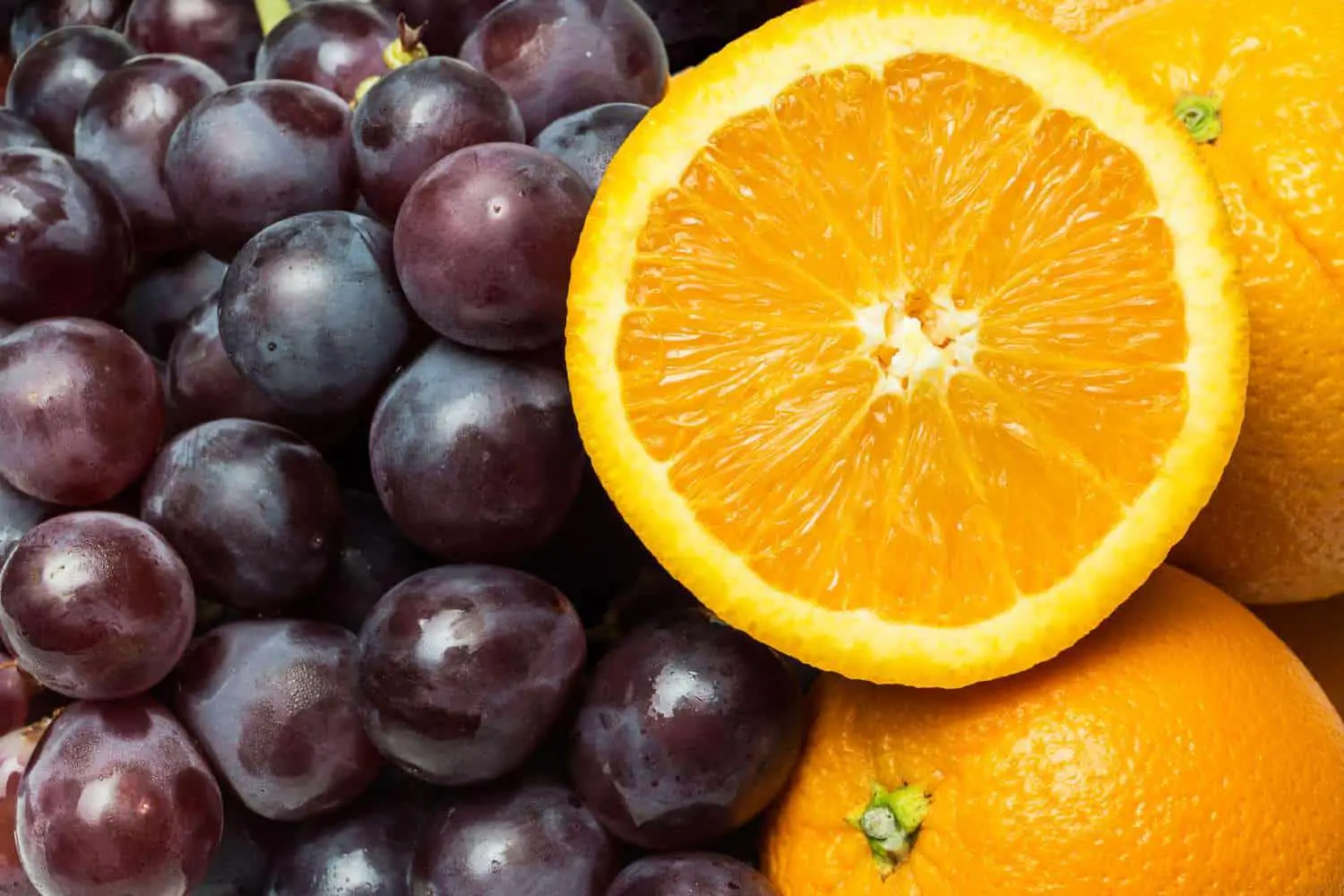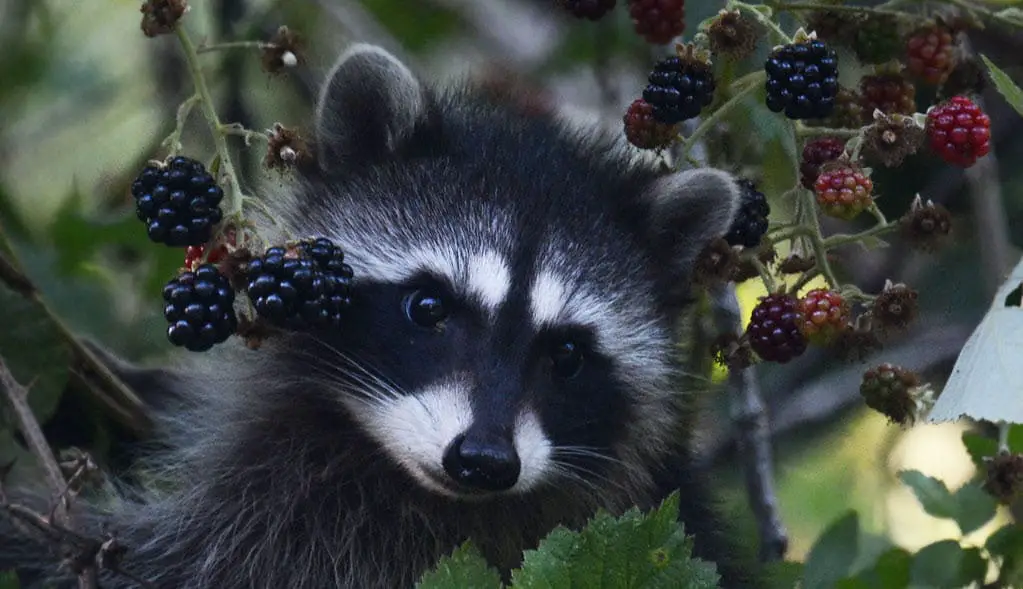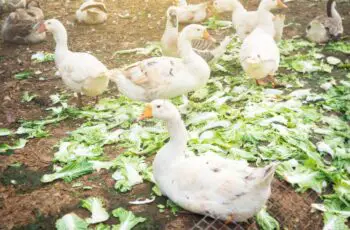Raccoons are known to be opportunistic eaters, consuming a wide variety of foods both in the wild and in human-inhabited areas. However, questions arise about whether certain fruits, such as grapes and oranges, are safe for raccoons to eat. In this essay, we will explore the potential effects of feeding grapes and oranges to raccoons, considering both their overall health and any potential side effects.
Grapes are a popular fruit enjoyed by humans. However, when it comes to raccoons, there is controversy about whether they can eat grapes, and more specifically, grape seeds. While many believe that raccoons can safely consume grapes and their seeds, others argue that the seeds can be toxic to these furry creatures. In the following paragraphs, we will delve deeper into this topic to provide a clearer understanding of whether or not grapes and their seeds are a safe choice for raccoons to eat.
Can raccoons eat grapes?
Raccoons can certainly eat grapes, as they are omnivorous creatures that have a diverse diet. In the wild, raccoons typically consume fruits, insects, rodents, and small mammals. Grapes, being a type of fruit, can make up a part of their diet. However, it is important to note that raccoons are not picky eaters and will scavenge for food, especially in urban areas.

Can raccoons eat grapes?
This means that they may also eat human food, which can include grapes that are left out or are easily accessible. While grapes may be a tasty snack for raccoons, it is important to limit their access to human food as it can disrupt their natural eating habits and lead to potential health issues. Additionally, grapes can be dangerous for raccoons if they are fermented, as this can lead to alcohol poisoning. Overall, while raccoons can eat grapes, it is essential to be mindful of their diet and ensure they are not consuming too much human food.
Can raccoons eat grape seeds?
Raccoons are known to be opportunistic and curious eaters, so it’s not uncommon for them to try and eat a variety of different foods. This includes grape seeds, as they may come across them while foraging for food in the wild. While raccoons are capable of eating grape seeds, there are some potential hazards to be aware of. Firstly, grape seeds can be a choking hazard for raccoons if they are not crushed or chewed properly. This is because they have a tough outer coating that can be difficult to digest and can potentially block the raccoon’s throat.
- Can Raccoons eat Yogurt? Dairy products( Cheese, egg, Milk)
- Can baby raccoon Drink Milk? Raccoon breastfeed? Cow milk?
- How to create a Bootable USB for macOS Sonoma on a Windows PC?
Additionally, grape seeds contain a compound called tannins, which can be toxic to raccoons in large quantities. Therefore, it is best to limit the amount of grape seed a raccoon consumes to avoid any potential health issues. As with any food, it’s important to keep track of how much of it a raccoon is eating and monitor their behavior for any signs of discomfort or illness. Overall, while raccoons may be able to eat grape seeds, it’s best to exercise caution and limit their consumption to avoid any potential risks.
Can raccoons eat oranges?
Raccoons are omnivores and can eat a wide variety of foods, including fruits. Oranges, being a popular and widely available fruit, can certainly be consumed by raccoons. In the wild, raccoons will eat fruits such as berries, apples, and persimmons, so an orange would not be out of the ordinary for them. However, as with any fruit, it’s important to be mindful of the quantity of oranges that a raccoon consumes. While oranges are generally safe for raccoons to eat, they are high in natural sugars and can cause gastrointestinal upset if eaten in large amounts.

It’s also important to consider that raccoons tend to be omnivorous, so they may also consume other human foods, such as discarded orange peels. It’s best to limit their access to human food and monitor their diet to ensure they are getting all the necessary nutrients for optimal health. Overall, while oranges can be a part of a raccoon’s diet, it’s essential to exercise caution and moderation when feeding them any type of fruit.
Are grapes and oranges healthy for raccoons?
Grapes and oranges can be a healthy addition to a raccoon’s diet when consumed in moderation. Both fruits contain essential vitamins and nutrients that can benefit a raccoon’s overall health. Oranges are a great source of vitamin C, which is important for immune system function and can help prevent illnesses. They also contain fiber, which aids in digestion and helps maintain a healthy weight. Grapes, on the other hand, are a good source of antioxidants, which can help protect against cell damage and support a raccoon’s overall well-being.
They also contain important vitamins and minerals like vitamin K, potassium, and calcium. However, as with any food, it’s important to be mindful of portion size. Too many grapes or oranges can lead to gastrointestinal upset, weight gain, and other health issues. It’s also crucial to ensure that the raccoon is getting a balanced diet and not relying solely on fruits for nutrition. Overall, grapes and oranges can be a healthy addition to a raccoon’s diet, but it’s essential to feed them in moderation as part of a well-rounded meal plan.

Do Grapes have side effects on raccoon health?
While grapes and oranges can be a healthy addition to a raccoon‘s diet, they can have some side effects if consumed in excess. Both fruits are high in natural sugars, which can cause gastrointestinal upset and weight gain if eaten in large amounts. This can lead to digestive issues, obesity, and other health problems. Additionally, fruit should not be the main source of nutrition for raccoons, as they require a varied diet to meet all their nutritional needs.
Eating too much fruit can also lead to an unbalanced diet and deficiencies in essential vitamins and minerals. It‘s important to monitor a raccoon‘s fruit intake and ensure they are also consuming other foods such as insects, small mammals, and vegetables. As with any food, it‘s essential to feed grapes and oranges in moderation to prevent any potential side effects on a raccoon‘s health.
Is orange raccoon’s favorite fruit? or grapes?
There is no definitive answer to whether raccoons prefer oranges or grapes as their favorite fruit. Raccoons have a diverse diet and are known to be opportunistic eaters, so they will consume whatever food is available to them. However, depending on the location and time of year, raccoons may show a preference for one over the other.

For example, in areas where there are many orange trees, raccoons may be more likely to eat oranges as they are readily available. Similarly, in regions where grapes are abundant, raccoons may gravitate towards them. Ultimately, a raccoon‘s favorite fruit can vary depending on factors such as availability and personal preference. It‘s important to offer a variety of fruits as part of a balanced diet for raccoons, rather than focusing on a specific favorite.
FAQ
1. Are grapes and oranges safe for raccoons to eat?
Raccoons can eat grapes and oranges safely if fed in moderation as part of a balanced diet. Grapes can be a choking hazard if not crushed or chewed properly, and both fruits can cause gastrointestinal upset if consumed in excessive amounts. It’s important to monitor a raccoon’s portion size and overall diet to ensure they are not solely relying on fruit for nutrition.
2. Can raccoons become sick from eating too many grapes or oranges?
Eating too many grapes or oranges can lead to gastrointestinal upset and weight gain in raccoons. Additionally, relying on these fruits as the main source of nutrition can result in an unbalanced diet and deficiencies in essential vitamins and minerals. It’s crucial to limit a raccoon’s fruit intake and offer a variety of foods to maintain their overall health.
3. What are the potential hazards of raccoons eating grape seeds?
While raccoons are capable of eating grape seeds, they can pose several hazards. The tough outer coating of the seeds can be a choking hazard, and the seeds contain a compound that can be toxic in large quantities. It’s best to limit a raccoon’s consumption of grape seeds to avoid these potential risks to their health.
4. Can raccoons have a favorite between grapes and oranges?
There is no definitive answer to which fruit raccoons prefer, as they have a diverse diet and are opportunistic eaters. Depending on the location and availability, raccoons may show a preference for one over the other. It’s important to offer a variety of fruits to raccoons rather than focusing on a specific favorite as part of a balanced diet.
Conclusion
In conclusion, raccoons can eat grapes and oranges as part of a balanced diet. While these fruits can provide essential nutrients and antioxidants, it is important to feed them in moderation to avoid potential health hazards such as gastrointestinal upset and weight gain. Additionally, it is crucial to monitor a raccoon’s overall diet to ensure they are getting varied and balanced nutrition. Fruits should not be the only source of food for raccoons, and it is essential to limit their access to human food to maintain their natural eating habits. By understanding the potential effects and hazards of popular fruits like grapes and oranges, we can ensure the optimal health of our furry friends.


